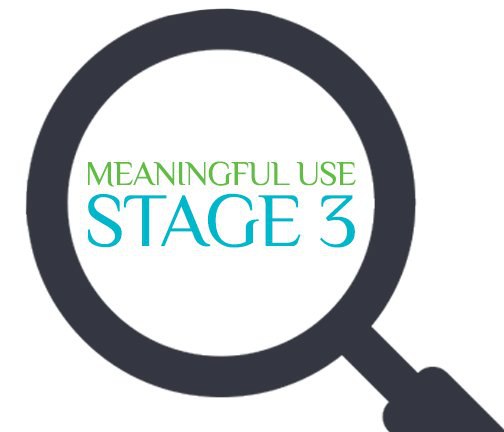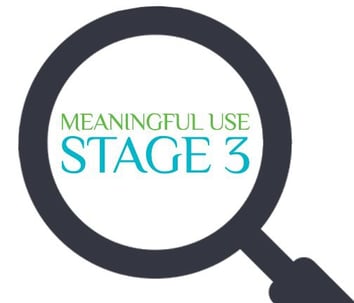CMS Submits Meaningful Use Stage 3 Final Rules to OMB for Review
By: Nextech | September 14th, 2015


Earlier this month, the Centers for Medicare and Medicaid Services (CMS) forwarded the final rules for Meaningful Use Stage 3, as well as modifications for the Stage 2 final rules, to the Office of Management and Budget (OMB) for review. While both rules were combined when they were sent on to the OMB on Sept. 3, it still remains to be seen whether or not they will be finalized in this manner (as one final rule or as two separate rules).  Some media outlets have speculated that it will be a combined rule, since this was how it was submitted to the OMB. However, a CMS spokesperson recently told FierceEMR that, at this time, it is inaccurate to claim that the Meaningful Use modification rule and the Stage 3 implementation rule will be combined, stating “We cannot make any comments while [this] policy is in [the] rule writing process.”
Some media outlets have speculated that it will be a combined rule, since this was how it was submitted to the OMB. However, a CMS spokesperson recently told FierceEMR that, at this time, it is inaccurate to claim that the Meaningful Use modification rule and the Stage 3 implementation rule will be combined, stating “We cannot make any comments while [this] policy is in [the] rule writing process.”
The OMB is expected to take about 90 days to review the final rule. However, since there is no set maximum length for review, there is the possibility that this period could be longer.
As mentioned in a past blog article on the proposed rule for Meaningful Use Stage 3, its incredibly weighty and onerous nature has caused many healthcare providers to freak out about future attestations. However, most of this panic seems to have been caused by the fact that no one can yet say for certain just which parts will be implemented and which won’t… at least, not until the final rule is actually approved and released.
What We Do Know
In its current form, the combined rule that was submitted to the OMB would shorten the 2015 reporting period for the Medicare/Medicaid EHR incentive program to a 90-day period that would be in line with the calendar year (and would do the same for 2016). It also contains changes to some of the Stage 2 patient action measures for patient engagement, removing certain reporting requirements that have come to be seen as unnecessary or redundant.
Of course, it isn’t really the MU Stage 2 stuff that’s making everyone bite their nails to the quick with anxiety.
The proposed rule for MU Stage 3, on the other hand… that thing has had a lot of providers questioning the sanity of the ONC and CMS policymakers.
Luckily, there is some good news to report. Stage 3 is still not supposed to begin until at least 2017, so everyone should have at least a year to prepare for it once the final rule is released as long as the OMB doesn’t drag its heels with this review. The rule also includes a number of new measures that are intended to help providers earn incentives as well as avoid incurring reimbursement penalties. Stage 3 is also supposed to establish just one set of objectives/measures for each type of eligible entity—eligible providers (EPs), eligible hospitals (EHs), and critical access hospitals (CAHs). While this single objective set is schedule to go into effect in 2017, it will not be required until 2018 (and this requirement will apply to all eligible entities, regardless of past participation in the EHR incentive program).
RELATED: Meaningful Use audits: Preparation is the name of the game
The final CMS MU Stage 3 rule that was submitted to the OMB is expected to be fairly similar to the proposed rule that was published back in late March, which outlined a number of primary objectives meant to improve overall interoperability (via a Health Information Exchange, or HIE), patient engagement, and public health standards. At least eight objectives from the proposed rule are expected to make it into the final rule (it could be more, of course, but we won’t know until they release it).
The following interoperability/HIE objectives are expected to pass in the final MU3 rule:
- A summary of care record using Certified Electronic Health Record Technology (CEHRT), as well as an electronic exchange of said record, will be required for 50%+ of all patients referred to a provider.
- Providers will be required to incorporate an electronic summary of care document into the EHR that comes from a source other than their own EHR system, for 40%+ of new patients.
- Providers must implement clinical information reconciliation with medication and current problems for 80%+ of all patients.
The following patient engagement objectives are expected to pass in the final MU3 rule:
- 25% of patients must actually access their records via View/Download/Transmit functions, or through some other ONC-certified Application Program Interface (API).
- 35% of patients must receive a clinically-relevant correspondence via secure messaging.
- Patient-generated health data or data from a non-clinical setting must be incorporated into certified EHR technology for more than 15% of all unique patients seen by an EP.
The following public health standard objectives are expected to pass in the final MU3 rule:
- Providers will be required to have the ability to send/receive data via bidirectional exchange between their CEHRT and an immunization registry.
- Providers will be required to participate in active exchange/engagement with a public health agency in order to submit data to public healthcare registries.
Needless to say, many people (including myself) would really appreciate it if the OMB would hurry things along by getting their review done in a timely manner so that everyone can finally get a look at the actual final rule for MU Stage 3, instead of leaving us all on this merry-go-round of speculative pandemonium.
Pretty please, OMB… get it done so folks can stop worrying about MU Stage 3 and actually start getting ready for it.
HERE ARE SOME RELATED ARTICLES YOU MAY FIND INTERESTING
Ophthalmology | Plastic Surgery | Compliance | Dermatology | MIPS | Regulatory & Compliance | Orthopedics
2024 Changes to MIPS Reporting Criteria
By: Heather Miller | November 8th, 2023
CMS | MIPS | Regulatory & Compliance
How to Handle Confusing Cost Scoring in Your MIPS Preview
By: Heather Miller | July 24th, 2023
Ophthalmology | Plastic Surgery | EHR | Dermatology | PM | Regulatory & Compliance | case studies
2022: A Look Back at Nextech’s Case Studies
By: Nextech | December 12th, 2022

